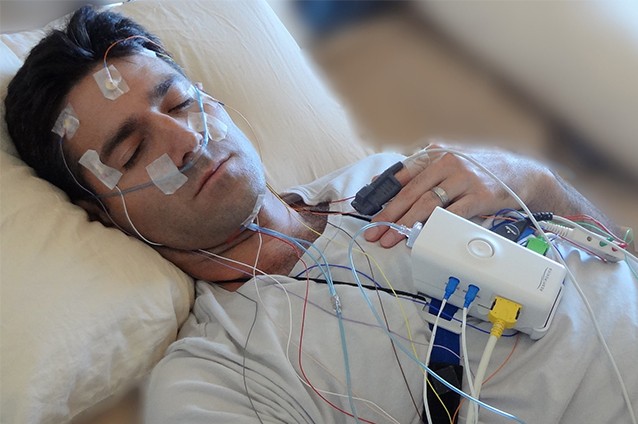Types of sleep testing
What is a sleep study?
To study your sleep we need to monitor and observe some of the physiological changes during sleep. A sleep test or polysomnogram can help to discover the causes of sleep disorders and plan your treatment. We do the Sleep study during your normal sleeping hours.
Overnight sleep test Polysomnography (PSG)
Polysomnogram is an overnight sleep study in sleep center. There will not be any other patients in your room. You will have a bathroom available to use.
Home sleep testing:
Home sleep testing is another option too, where the patient will take a simple sleep monitor equipment from the center. You will usually set up the testing equipment yourself before going to sleep and bring it back the day after. It allows you to sleep at home wearing equipment that collects information about how you breathe during sleep.

Multiple Sleep Latency Testing (MSLT)
MSLT will measure how quickly you fall asleep in a quiet environment during the day. Also known as a daytime nap study. The MSLT is the standard tool used to diagnose narcolepsy and idiopathic hypersomnia.
Multiple wakefulness Testing (MWT)
MWT measures how alert you are during the day. It shows whether you are able to stay awake for a defined period. This is an indicator of how well you are able to function and remain alert in quiet times of inactivity.
Actigraphy
it is now possible to measure a person’s activity, environmental temperature, and light levels, all by a device like a wristwatch. We use Actigraphy in the assessment of patients with Insomnia Circadian Rhythm Disorders or other sleep disorder
- What happens after the test?
All monitoring devises will be removed, within few days you have to come to sleep Disorders Clinic for your follow up appointment with your Physician. By that time the sleep study results will be thoroughly analyzed, scored and interpreted by the sleep consultant. Your Physician will explain the test results to you and he will discuss with you the treatment options.
